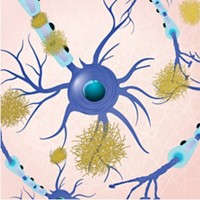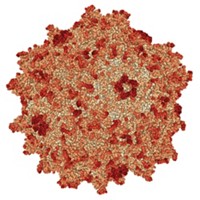Advertisement
Grab your lab coat. Let's get started
Welcome!
Welcome!
Create an account below to get 6 C&EN articles per month, receive newsletters and more - all free.
It seems this is your first time logging in online. Please enter the following information to continue.
As an ACS member you automatically get access to this site. All we need is few more details to create your reading experience.
Not you? Sign in with a different account.
Not you? Sign in with a different account.
ERROR 1
ERROR 1
ERROR 2
ERROR 2
ERROR 2
ERROR 2
ERROR 2
Password and Confirm password must match.
If you have an ACS member number, please enter it here so we can link this account to your membership. (optional)
ERROR 2
ACS values your privacy. By submitting your information, you are gaining access to C&EN and subscribing to our weekly newsletter. We use the information you provide to make your reading experience better, and we will never sell your data to third party members.
Neuroscience
Biogen’s ALS drug falters in Phase 3 trials
The antisense drug tofersen failed to improve symptoms of the neurodegenerative disease, but the company wants to expand access to it anyway
by Megha Satyanarayana
October 20, 2021
| A version of this story appeared in
Volume 99, Issue 39

Biogen’s experimental treatment for amyotrophic lateral sclerosis (ALS) failed to meet its goal of reducing symptoms in a Phase 3 clinical trial—a disappointing result for the highly anticipated treatment.
Despite the setback, the company calls some of its secondary findings encouraging and is asking the US Food and Drug Administration to broaden availability of the drug, which is already being administered under a compassionate use program.
The treatment, tofersen, was part of a deal struck by Biogen and Ionis Pharmaceuticals in 2018 that cost Biogen $1 billion. It would have been the first antisense drug for ALS, a neurodegenerative disease in which people lose motor function and become progressively weaker. Small-molecule treatments for the disease exist, but experts say they don’t offer the benefits that tofersen might have.
“We were pretty disappointed,” says Nicholas Maragakis, a neurologist at Johns Hopkins Medicine who was one of the investigators in Biogen’s trials. But he notes that other tofersen trials are afoot, including in people who are at earlier stages of the disease than many of the 108 people who took part in this 28-week placebo-controlled, double-blind trial.
Tofersen is an antisense oligonucleotide—a nucleic acid drug that blocks a cell’s ability to make a specific protein. It was developed to treat a rare familial version of ALS that arises in people who have mutations in the gene for superoxide dismutase 1 (SOD-1). Under normal conditions, SOD-1 helps manage oxidative stress in cells. While it’s not completely clear how mutant SOD-1 leads to ALS, Maragakis says the aberrant protein seems to mess up normal cell function.
Li Niu, a biochemist developing RNA-based drugs for ALS at the University of Albany, says tofersen is a single strand of DNA that pairs with the natural messenger RNA (mRNA) the body makes to create the SOD-1 protein. When tofersen gloms onto the SOD-1 mRNA, it sets off a biological cleanup process that degrades the RNA complex. Over time, this reduces levels of SOD-1 in a cell.
Although it successfully decreased SOD-1 levels in patients, tofersen did not meet the trial’s primary endpoint, which is based on a self-reported scale of motor function. Still, Maragakis sees progress. For the past couple of decades, ALS drugs would fail in trials and it wouldn’t be clear if the failure was due to the drug not making it to its targets in the nervous system. The drop in SOD-1 protein levels indicates that tofersen is getting where it’s supposed to go. In addition, the drug seemed to reduce the level of neurofilaments, a neuron structure that is found in many people with ALS.
Based on these two secondary results, it makes sense for Biogen to increase access to tofersen, Maragakis says. “It’s a reasonable thing to be doing for patients who don’t have other choices.”
Biogen is also looking to test tofersen in people who are earlier in their disease progression.




Join the conversation
Contact the reporter
Submit a Letter to the Editor for publication
Engage with us on Twitter